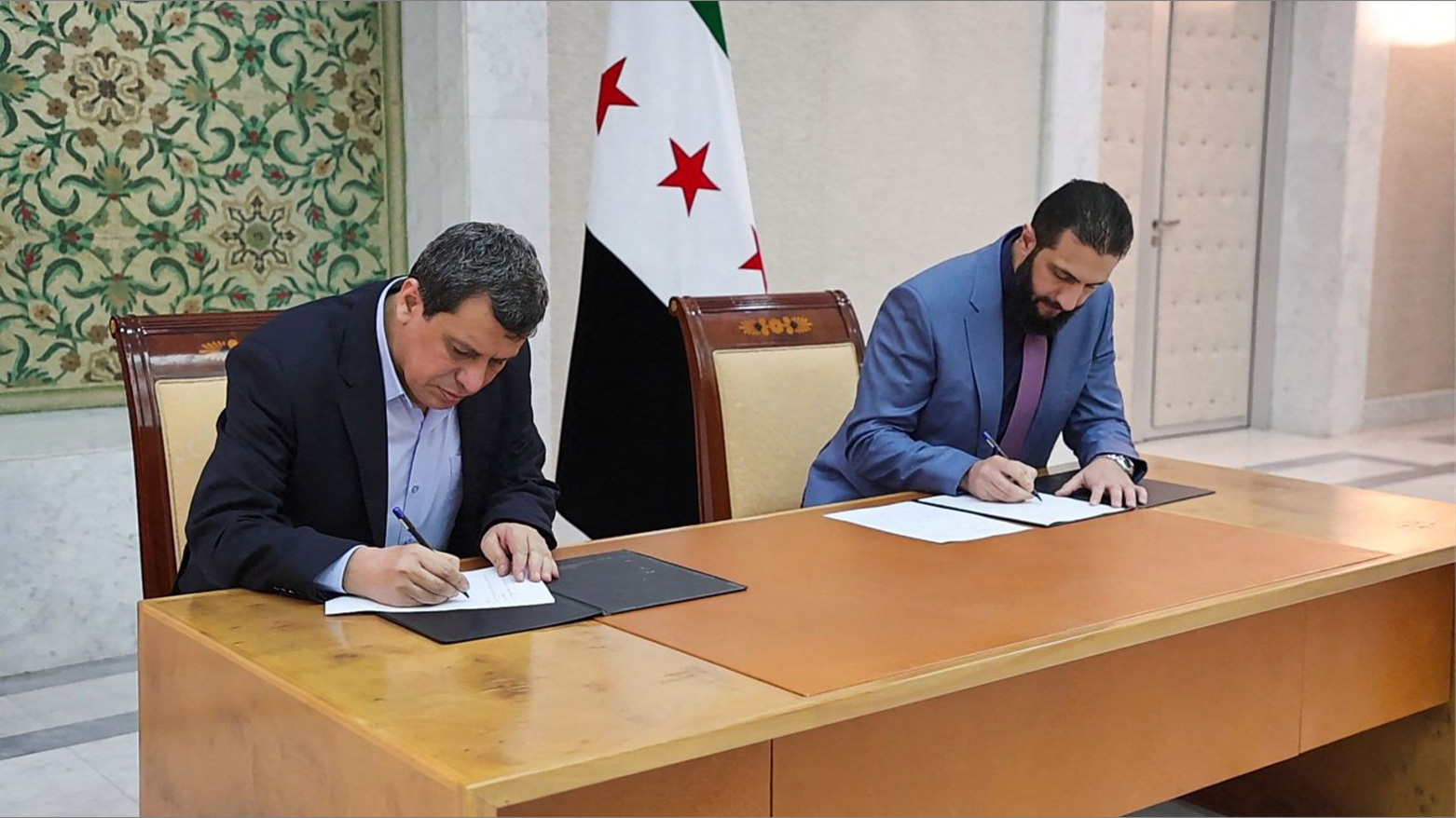‘Agreement a Key Step Toward an Inclusive New Syria,’ Mazloum Abdi
The agreement, signed in Damascus, comes at a critical moment as Syria continues to grapple with deep-seated sectarian tensions.

ERBIL (Kurdistan24) – In a landmark development for Syria’s future, Mazloum Abdi, the General Commander of the Syrian Democratic Forces (SDF), declared that an agreement has been reached with Syrian authorities to facilitate a transitional phase that aligns with the aspirations of the people.
His announcement, made on the social media platform "X" on Tuesday, underlined a commitment to justice, stability, and an inclusive political process.
"In this sensitive period, we are working together to ensure a transitional phase that reflects our people’s aspirations for justice and stability. We are committed to building a better future that guarantees the rights of all Syrians and fulfills their aspirations for peace and dignity. We consider this agreement a real opportunity to build a new Syria that embraces all its components and ensures good neighborliness," Abdi stated.
The agreement, signed in Damascus, comes at a critical moment as Syria continues to grapple with deep-seated sectarian tensions.
According to a report by The Washington Post, the deal was signed by Syrian interim President Ahmed al-Sharaa and SDF commander Mazloum Abdi, marking a significant step towards unifying the war-torn nation.
The agreement recognizes the Kurdish community as an indigenous component of Syria, ensuring their political and constitutional rights, and calls for the full integration of the SDF’s military and civil institutions into Damascus’ governance structures.
As The New York Times (NYT) reported, the timing of this agreement is crucial, given the violent unrest in Syria’s coastal region, where more than 1,300 people have lost their lives in recent sectarian clashes. The NYT wrote that the integration of the SDF into Syria’s National Defense Force system is a major breakthrough for the new government, which has struggled to bring various factions under its authority since the fall of Bashar al-Assad in December 2024.
The New York Times report also stated that the agreement could give Damascus control over key economic and strategic assets, including northeastern Syria’s border crossings, airports, and oil fields.
The agreement also lays out a framework for the protection of all Syrians' rights, ensuring equitable representation in political processes and state institutions. A key provision explicitly affirms the Kurdish community’s rightful place in Syria, guaranteeing full citizenship and constitutional rights.
According to The Wall Street Journal, the deal is seen as a major victory for President al-Sharaa, who has been pushing to consolidate control after armed revolts and sectarian killings threatened the stability of his interim government. The agreement also aligns with ongoing U.S. diplomatic efforts to mediate between the SDF and Syrian rebel groups.
Another critical aspect of the deal is a nationwide ceasefire. The agreement calls for the safe and voluntary return of Syrian refugees under state protection, an essential step in stabilizing the country. However, The Washington Post highlights concerns over lingering sectarian violence, particularly in Syria’s Alawite-majority coastal regions, where tensions have flared after government forces clashed with insurgents. According to reports, more than 779 people were killed in clashes over the past week alone.
In its final clause, the agreement commits both parties to supporting the Syrian state in eradicating threats to national security, including remnants of the Assad regime and other destabilizing elements. As The Wall Street Journal notes, the deal comes shortly after the jailed leader of the Kurdistan Workers’ Party (PKK) called for disbanding the group, a development that could have far-reaching implications for the SDF, which includes Syrian Kurdish fighters with past PKK affiliations.
Despite the breakthrough, challenges remain. Skepticism persists over whether the SDF will be allowed to operate as a distinct military bloc within Syria’s armed forces, a point of contention in previous negotiations. Furthermore, concerns remain over Turkey’s stance on the agreement, given its long-standing opposition to Kurdish military autonomy. According to The New York Times, fighting between Kurdish-led forces and Turkish-backed armed groups in northeastern Syria continued even after the deal was signed.
The agreement between Abdi and Sharaa represents a major turning point in Syria’s prolonged crisis. While its successful implementation remains uncertain, the framework lays the groundwork for a potentially inclusive and unified Syria. The international community will be closely watching how this development unfolds, as it could shape the country’s post-war trajectory in the years ahead.